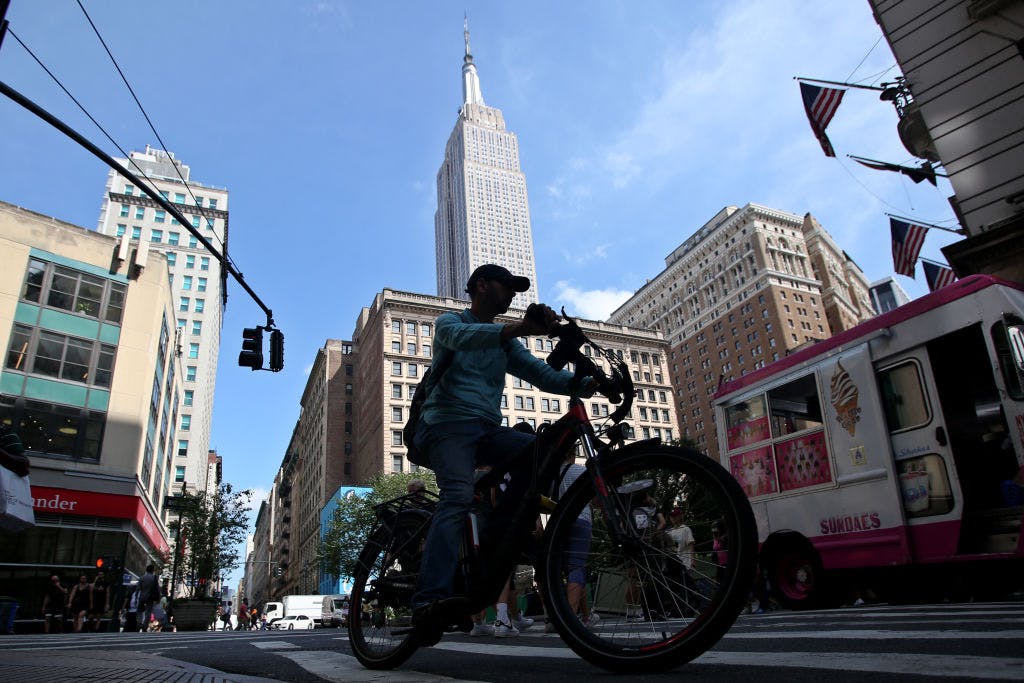Pay is way up and tipping is down after NYC's delivery wage hike. Takeout prices are flat.
Food-delivery workers took home $19.26 an hour, including tips, during the first quarter of 2024. That’s up from $11.72 a year earlier.
Requiring food delivery apps to pay their drivers a minimum wage doesn't dramatically change the cost of takeout, according to data released by New York City.
New York raised the minimum wage for app-based food delivery workers last year. Uber, DoorDash and Grubhub launched a fierce legal battle challenging the switch, but a judge ruled in favor of the city, allowing it begin enforcing the law in December.
The initial phase-in rate was $18.96 an hour, which was raised by 3.15% in April to adjust for inflation, and it now sits at $19.56.
According to the city’s data, a delivery driver made $19.26 an hour on average in the first quarter of this year including tips, up from $11.72 an hour during the same period last year.
That’s a 64% increase in hourly wages in one year. Workers relied significantly less on tips, with the vast majority of their wages now coming from the apps.
Delivery-app have long argued that paying their drivers (which they consider contractors) a set wage would require them to pass costs onto consumers and merchants.
The apps did in fact start charging higher fees. On average, consumers spent 46% more on fees compared to a year ago. But they tipped 68% less, bringing the total average cost of a delivery order up only 2%, or 76 cents.
The apps also charged merchants 13% more in fees since last year, the city found.
New York may serve as a test study for other cities or states exploring minimum wages for app-based workers. Seattle started enforcing its own this year as well.
Ravi Inukonda, DoorDash's chief financial officer, told analysts in May that the company "did absorb a meaningful amount of cost" in the first quarter of this year due minimum wage laws in New York and Seattle. DoorDash has never been consistently profitable.
"We did pass on some fees to consumers," he said. "I do expect that every market that we operate in over time will have sustainable unit economics."
